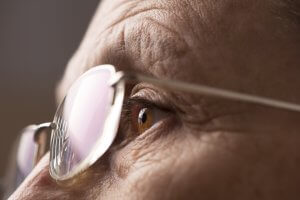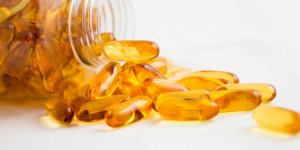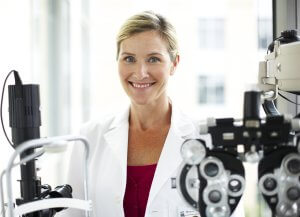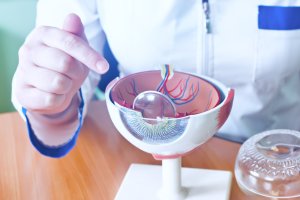Treatment for Macular Degeneration

Voted Best of Berks—
eight years in a row!
Treatment for macular degeneration depends on the type and severity of the condition. While there is currently no cure for macular degeneration, several treatment options are available to manage the disease and slow its progression. Here are some common treatments for macular degeneration:
Dietary Supplements: Certain vitamins and minerals have shown potential in slowing the progression of macular degeneration, particularly in the dry form. The Age-Related Eye Disease Study (AREDS) and AREDS2 have identified specific combinations of antioxidants and vitamins (such as vitamins C and E, zinc, copper, lutein, and zeaxanthin) that may be beneficial in reducing the risk of advanced macular degeneration. It is important to consult with an eye care professional before starting any dietary supplement regimen.
Low Vision Aids: For individuals with advanced macular degeneration and significant vision loss, low vision aids can help maximize remaining vision and improve quality of life. These aids include magnifying lenses, special glasses, and electronic devices designed to enhance visual function and assist with daily activities.
Lifestyle Modifications: Making certain lifestyle changes can also have a positive impact on macular degeneration. These include quitting smoking, maintaining a healthy diet rich in fruits, vegetables, and omega-3 fatty acids, exercising regularly, and managing underlying health conditions such as high blood pressure and high cholesterol. These lifestyle modifications can help reduce the risk of disease progression and improve overall eye health.
Anti-VEGF Injections: Anti-VEGF (vascular endothelial growth factor) drugs are the most common and effective treatment for wet macular degeneration. These drugs are injected into the eye to inhibit the growth of abnormal blood vessels and reduce leakage of fluid. Regular injections are required to maintain the treatment’s effectiveness.
Photodynamic Therapy (PDT): PDT is another treatment option for wet macular degeneration. It involves injecting a light-sensitive drug called verteporfin into the bloodstream, which is then activated with a laser targeted at the abnormal blood vessels. The activated drug helps to seal off the vessels and prevent further leakage and damage.
Laser Photocoagulation: This treatment is used for specific cases of wet macular degeneration where abnormal blood vessels are located away from the central macula. A laser is used to seal the leaking blood vessels and prevent further damage. However, this treatment is less commonly used due to the risk of damaging healthy retinal tissue.
Come See Us
AMD or age-related macular degeneration is a fairly common eye condition in people over the age of 60. In fact, AMD is the leading cause of vision loss among Americans in this age group.
Regular monitoring and follow-up appointments with an eye care professional are essential for individuals with macular degeneration. They can assess the progression of the disease, adjust treatment plans as needed, and provide guidance on managing symptoms and optimizing visual function.
It’s important to remember that treatment options for macular degeneration may vary depending on individual circumstances, and the effectiveness of treatments can vary from person to person. It is crucial to work closely with an experienced eye care professional to develop a personalized treatment plan based on your specific needs and the stage of macular degeneration.
If you suspect you have macular degeneration, make an appointment with the retinal specialists at Eye Consultants of Pennsylvania. We have several convenient locations in the Pennsylvania area and we are ready to meet all your eye care needs.
Find a Doctor
Physician information including education, training, practice location and more.
Schedule an Appointment
Call 800-762-7132 or make an appointment online.





